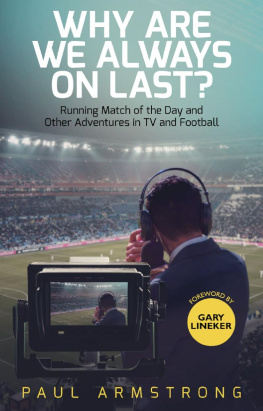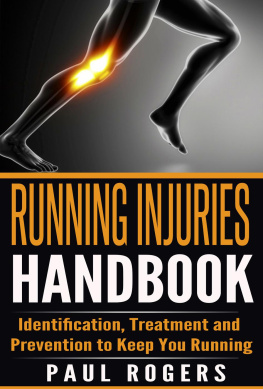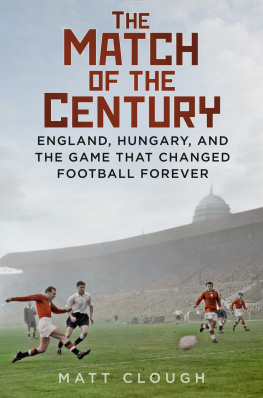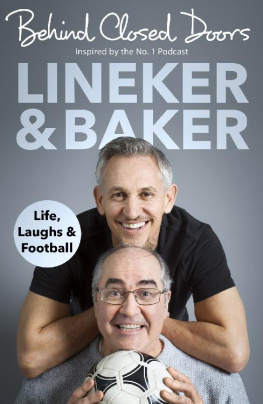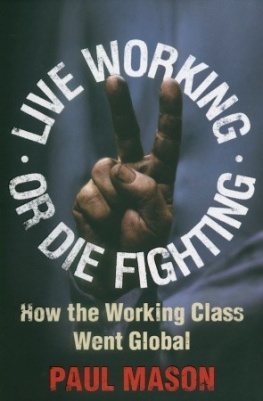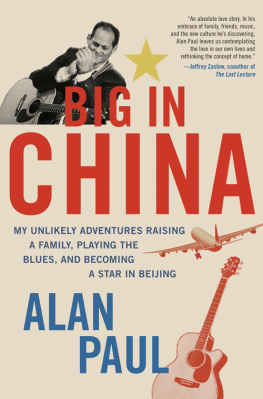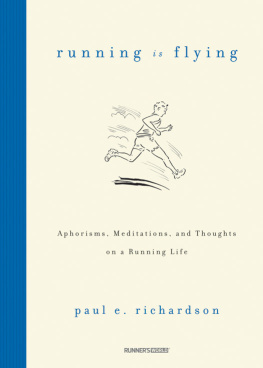Acknowledgements
To all at BBC Sport, past and present broadcasters, producers, technicians and support staff alike Im forever in your debt for the decades of camaraderie, dedication and shared love of sport. Particular thanks to Gary Lineker for writing the foreword, and to Andrew Clement, Michael Cole, Lance Hardy, Peter Allden and Gary again for taking the time to corroborate (or correct) my sometimes hazy recollections. Thanks also to Tony Bate, Ian Finch, Mel Cregeen, Phil Sibson, Jim Cullen and Jo Tranmer for supplementing my limited photo archive; and to two wonderful causes Comic Relief and the Macmillan Cancer charity for graciously allowing me to use their professionally taken images. As a first-time author, I am especially grateful to Charlotte Atyeo for her advice, encouragement and support, and to Paul and Jane Camillin, and all at Pitch Publications, for transforming my ramblings into a proper grown-up book.
Id also like to express my appreciation to all my friends and family for their support and understanding as I spent the sporting summers at events and worked weekends and late nights all year round. Especially to my wife Amanda for putting up with more of the same during the writing of this book, yet still finding time to dispense improvements in style and grammar. Finally, thanks to my Dad for first taking his six-year old son to Ayresome Park one crisp February afternoon in 1971, and to my Uncle Michael and the rest of the Chipchase clan for sharing the several highs and many lows ever since. UTB.
Sportsnights, and days with David Coleman
Before I move on to my BBC baptism of fire with David Coleman and Esther Rantzen (not at the same time, that really would have finished me off), heres how I set off on an unlikely route to more than a quarter of a century at BBC Sport.
I was born, and spent my first 14 years, in Smoggieland: the unglamorous, and in football terms less deluded corner of the North East. Teesside was booming when I was born in 1964, but it didnt last long. When my Dad was moved south by the areas main employer ICI in 1979, the local economy was already on the slide. We had Captain Cook, and in the case of my hometown of Stockton-on-Tees, 1820s glory with the worlds first passenger railway and the invention of the friction match by James Walker the chemist, but in the modern era we had chemical plants, steel and sport. I attended Ian Ramsey Comprehensive School which was founded in 1963, the year before I was born.
All the well-known alumni listed on Wikipedia played sport at the top level: Olympic athlete and 5 Live commentator Alison Curbishley; former flying Leicester Tigers winger Steve Hackney; and, among a number of professional footballers, the combative Lee Cattermole of Boro and Sunderland fame or infamy.
I was never in that sporting bracket I was far too much of a lightweight fancy dan to Cattermole anyone, for starters but we did live the clichd existence of playing football every break time and after school until it got dark, then cricket every day from May until September. I recently discovered that one of the more talented Stockton lads I kicked a ball around with went on to play and score in international football. Come on down Martin Todd of the Bahamas, Gold Cup qualifying, 1999. Along with playing briefly up front at college with an Irish sporting legend, Brendan Mullen (rugby union, bit crap at football, but very quick), my sporting cv is slowly coming together 2. Thanks, Facebook.
And I watched everything and anything to do with sport on TV. To my eternal regret, I remember the 1970 Mexico World Cup opening ceremony (why are we called Inglaterra, Dad?) but not the best-ever tournament that followed. By 1971, though, I was across it all. Charlie George lying on his back after his FA Cup Final winner, David Coleman telling us excitedly that Colchester were now 3-0 up in the fifth round of the cup against the mighty Leeds, Johan Cruyffs Ajax beating the exotically named Panathinaikos in a Wembley European Cup Final, the equally exotic Bishen Bedi tying Boycott and co. up in knots in that summers Tests, Geoff Lewis and the great Mill Reef winning the Derby from Linden Tree and Irish Ball, Lee Trevino pipping Mr Lu of Taiwan (wheres Taiwan, Dad?) to the Open, Eddie Waring describing Sid Hiness early bath in the Challenge Cup Final, David Bedford being outpaced by a Finn and an East German in an epic sprint finish in the European Championship 10,000m. I sat glued to them all in that golden year of 1971. I dont even follow some of those sports now, but if it was on TV and unless you were a bit naff and wanted to watch wrestling, the ITV Seven or cliff-diving from Acapulco that pretty much always meant the BBC and Grandstand, and I was there.
And I was also beginning to discover the joys of spectating. Durham, then of the Minor Counties, often played cricket at Stockton, and Yorkshire played a match a season at Acklam Park, Middlesbrough. We had family outings to high-quality flat racing at York. And we had the mighty Boro. Middlesbrough FC had never won anything, unless you counted the Amateur Cup back in the 1890s. They were poised to win the league both seasons that the world wars broke out, according to the old-timers, and had been robbed countless times in FA Cup quarter-finals but wed spent about half our existence in the top flight and produced a string of great local players like Wilf Mannion and Brian Clough.
The first game I saw was a 5-0 win against Norwich in February 1971 (Downing, Hickton (2), Mcllmoyle, Laidlaw) and with Stan Anderson later replaced by Jack Charlton in his first job in management, and Bobby Murdoch coming in to supplement Graeme Souness and David Armstrong in a phenomenal midfield, I didnt see a home defeat at Ayresome Park until QPR won there in 1976/77, by which time they were established in the top flight. We didnt go to every home game, by any means my Dad and uncle wisely kept me away from likely 70s flared-trousered flashpoints when the Leeds or Manchester United hordes came to town but I was left with a wildly exaggerated faith in my clubs prowess, which sowed the seeds for many future disappointments. I also only discovered later that most of the rest of the country viewed Big Jacks team as a carbuncle on the backside of the beautiful game. Away from home in that era of two points for a win, our uncompromising defence of Craggs, Spraggon, Boam and Maddren (as the peerless Boro writer Harry Pearson once wrote, sounding like a collection of Anglo-Saxon farming implements) booted the rest of the country up in the air and ground out countless 0-0 draws to Cockney cries of Borrring, Borrring Barrah. Good. It served the soft southern bastards right.
Then suddenly, I was one of them. A soft southerner, that is. My Dad was relocated to ICIs London HQ. We moved down to Kent and I found myself starting my O level studies at Judd School, Tonbridge, a state grammar with an excellent academic record some outstanding sixth-form politics and English teachers eventually helped get me good enough A level grades to get into Oxford but one which at the time was, socially at least, a desperate public-school wannabe. All fur coat and no knickers, as northern ladies of a certain vintage used to say about upwardly mobile women. Starting the fourth year there felt like arriving in outer space. There were no girls (a bit of a downer for a hormonal teenager whod begun to enjoy their company); incomprehensible traditional maths (Id been learning some trendy modern version); you were addressed by your surname and supposed to say Sir back and, most appalling of all, there was no football. Until the summer term, when you could play cricket or tennis, there was only rugby (rugby union, not that other northern abomination), or if you were a lily-livered wimp who valued his teeth, you could go on an invigorating cross-country run instead. Those were your only choices.
Next page
